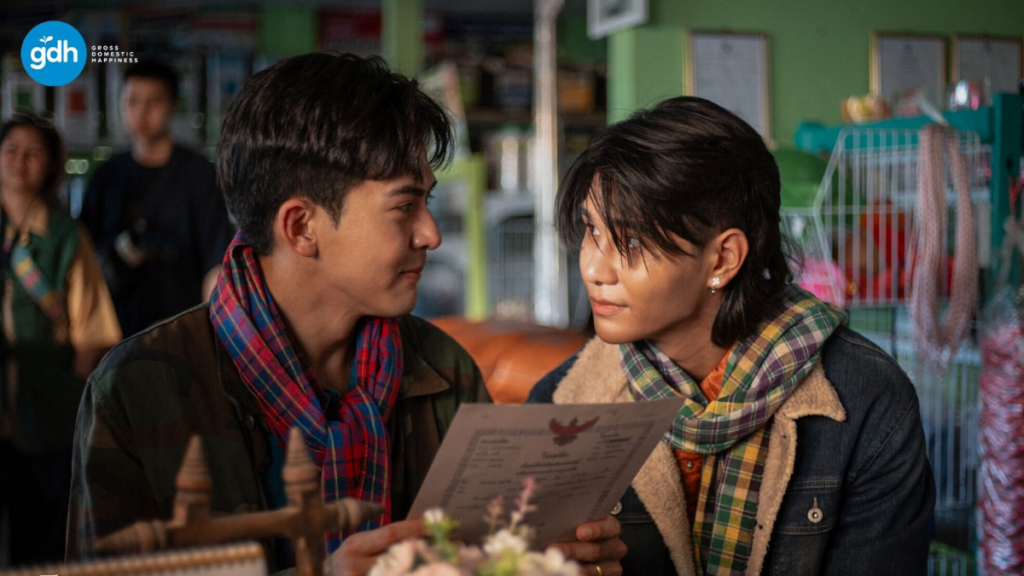Through the Generations: South Korean Independent Women Filmmakers

In 2023, a report by the Korean Film Council revealed that there was only one commercial film out of 35 that was directed by a woman in South Korea. This is the lowest ratio reported since the first published report in 2017. When you include independent and art films, women directed 22.8 percent of the 183 films that were produced in South Korea in 2023. Analyzing the final results, KOFIC stated, “The involvement of female talent was relatively robust in low-budget, independent, and art films, but it appears to be limited in the commercial film segment.”
For multiple generations, South Korean women have subverted the deep-rooted patriarchal norms through their filmmaking. Despite a lack of support and funding, women filmmakers in South Korea have utilized the medium of film to uplift those who are seldom represented. From working independently to forming film collectives, they have addressed topics such as feminism, sexism, and human rights. EnVi introduces six South Korean women filmmakers who have showcased their unique voices through the creation of various independent films.
The Pioneering Women Creative
Park Nam-ok
In 1955, South Korea’s first female director Park Nam-ok made her debut with The Widow (Mimangin) at the first Women’s Film Festival in Seoul. The melodrama centers around Lee Shin-ja, a widowed refugee trying to overcome hardships and find love after the conclusion of the Korean War.
The path Park took to directing her first film was not linear in comparison to that of her male counterparts. Born in 1923, Park was an avid consumer of art, enjoying it through a variety of mediums. In 1943, she attended what is now known as Ewha Women’s University and majored in home economics, a domestic science. Having little interest in that area of study, Park dropped out and began work as a reporter. Through a connection, she was able to land a job at Joseon Film Company where she worked as an editor and scriptwriter.
Park met her scriptwriter husband, Lee Bo-ra, when she worked on a war film during the Korean War. Shortly after the birth of her first child in the summer of 1954, Park had the urge to develop her film. With the help of her husband and other close associates, Park started filming The Widow in the winter of 1954. Park had to carry her child on her back during the filming process as she could not afford childcare. She also had to hand-cook meals for the crew due to a lack of funding. Through many trials and tribulations, Park successfully released her first and last film. Although The Widow was a commercial failure, many women creatives in Korea drew inspiration from Park’s story.
The Rise of Independent Feminist Films
Han Ok-hee and Kaidu Club
In 1974, the experimental feminist film collective Kaidu Club was formed. Led by director Han Ok-hee, the organization did not fight to infiltrate its way into the male-centric industry, but it strived to impede the deeply-rooted patriarchal systems. Kaidu Club specialized in experimental filmmaking, allowing them to transcend beyond the normal conventions of storytelling. Through the common practice of narrative filmmaking, a clear story is presented, which allows for straightforward analysis and discussion. Conversely, an experimental approach utilizes various abstract techniques that encourage audiences to think deeper.
Kaidu Club was active for about four years. During this time, women with different creative backgrounds came together to create vibrant and memorable films such as Rope and 2minutes40seconds. After the dissolution of the club, Han directed several personal projects under her self-founded Kaidu Production company. In 1991, Han released The Silence of Love, which takes the works of Korean poet Han Young-un and translates them into “cine poems.”
Byun Young-joo and Bariteo
Director Byun Young-joo is one of the founding members of women’s film collective Bariteo along with film scholar Kim So-young. The first part of the name ‘Bari’ is inspired by the Korean myth Bari-degi (meaning abandoned one) which tells the story of the first woman shaman (or mudang). The second part is ‘teo (터),’ meaning foundation.
In 1990, Bariteo released their debut film Even Little Grass Has Its Own. Split into two parts, the film details the daunting experiences of women in the workplace. Part one follows an office worker who has difficulty balancing her domestic and office tasks, while part two features single office workers who form a labor union to combat workplace discrimination.
After the conclusion of Bariteo, Byun went on to direct a well-known documentary trilogy that tells the stories of comfort women who were sexually exploited by Japanese military men during World War 2. The first film of the series, The Murmuring (낮은 목소리), has gone on to be one of the most acclaimed documentaries in Korea’s history. The documentary shows the lives of six survivors as they protest outside of the Japanese embassy demanding an apology and compensation for the atrocities countless women endured during the war.
Before the filming of The Murmuring, the women initially rejected Byun’s request to film their story. After living in the House of Sharing for a year, though, Byun was able to create a bond and gain permission to amplify their story. For the second film in the series, Habitual Sadness (1997), the women reached out to Byun, asking her to film the final days of one of their members who had cancer. In Habitual Sadness, the once apprehensive women become more comfortable with the filming process. Taking a step behind the camera, the women explore a new method of healing. In the final film, My Own Breathing (2000), Byun decided to forgo any music or narration.
The New Generation
Sun Hee Engelstoft
In March 2019, Copenhagen-based director Sun Hee Engelstoft unveiled her debut documentary to the world. Several years in the making, Forget Me Not provides insight into the pressures that unmarried pregnant women face in South Korea. Being one of the thousands of children adopted internationally from Korea, Sunhee wanted to understand both her culture and her mother’s heartbreaking decision. “What makes a mother give her baby away?” was the driving question behind the development of the documentary film.
For a year and a half, Engelstoft spent time at Aesuhwon, a shelter for single mothers located on Jeju Island. During that time, she bonded with three expectant mothers as they grappled with making a tough choice. Learning that the decision to give up their child wasn’t up to the mothers, Sunhee expressed a mixture of sadness and disbelief, “…the film was shot mostly between 2013 and 2014, and if this is how the situation is now for women in Korea, then how was it in 1982 when my mom gave birth to me?”
Byun Gyu-ri
Byun Gyu-ri, a director under the activism collective PINKS, released her latest documentary film, Coming to You in 2021. The documentary film follows two mothers, Vivian and Nabi, whose lives change after their respective children come out as queer. While living in a society that is not accepting of the LGBTQ+ community, the two women never thought to delve into understanding the discrimination queer people face. During the course of the film, the women grow to accept and understand their children as they are. In a press event, Byun expressed her sentiments regarding the development of the film, “To be honest, I think the parents of queer people don’t have the means, vocabulary, or infrastructure to learn. So what are some things we need to create these loving relationships? I think this movie is a start in exploring that question.”
Kim Il-rhan and PINKS
PINKS (연분홍치마) is a Korean film collective that was formed in 2004. Through the production of documentaries, web content, and more, the members at PINKS aim to show solidarity through the creation of feminist and queer narratives.
In 2009, PINKS released 3xFTM, which gives insight into the lives of three transgender men as they navigate through varying mental and physical struggles. When discussing the intended impact of the film, Director Kim Il-rhan stated, “I wish that non-transgender women and FTM transgender could share the issue of a variety of discrimination and oppression from gender dichotomy, and think about how to solve the problems together, to ponder the direction of transgender civil rights movements.” Two years later, Kim released another documentary, Miracle on Jongno Street, which showcases the harsh realities of four gay men living in a conservative society.
Later on, PINKS expanded its reach by creating films discussing other human rights issues. In 2012, the documentary film Two Doors was released. The film addresses the 2009 Yongsan disaster that resulted in the death of five protesters and one police officer. In the follow-up film, The Remnants, the events of the tragic night are revisited as director Kim Il-rhan and Lee Hyuk-sang document the lives of five evictees who were involved in the protest.
Looking for more ACT!ON content? Check out our interview with Iranian director Noora Niasari here!



